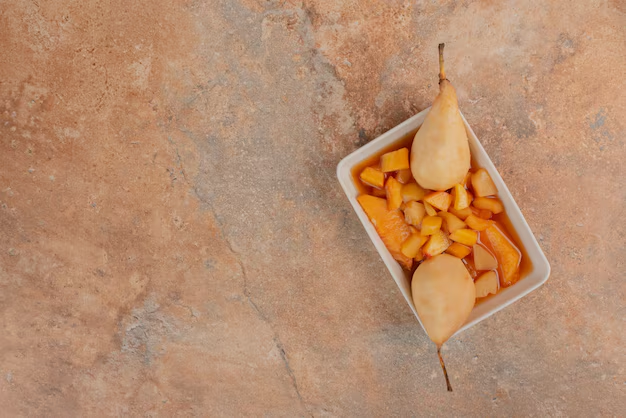Should You Store Sweet Potatoes in the Refrigerator? An Essential Guide
When it comes to storing sweet potatoes, there’s often confusion about the best method to maintain their freshness and nutritional value. Many people find themselves wondering if the refrigerator is the right place to store these versatile tubers. Let's explore this topic in detail, uncover best practices, and address common concerns.
Understanding Sweet Potatoes
Sweet potatoes are not only delicious but also packed with nutrients. They originate from tropical climates and come in a variety of types, each with distinctive flavors and textures. Their high vitamin content, especially vitamin A, alongside fiber and antioxidants, make them a staple in many diets. Given their nutritional importance, it’s essential to store them properly to reap the benefits fully.
Varieties of Sweet Potatoes
Sweet potatoes vary in color, size, and use, often categorized by the hue of their flesh or skin:
- Orange Flesh: Commonly used in baking, these are rich in beta-carotene.
- Purple Flesh: Packed with antioxidants, they're often found in Asian cuisines.
- White Flesh: Less sweet but ideal for savory dishes.
Understanding these differences can influence how you store and prepare them.
The Refrigeration Debate
One of the most commonly debated questions is whether sweet potatoes should go in the refrigerator. While keeping some vegetables in cold storage prolongs their life, sweet potatoes are an exception due to their unique composition and characteristics.
Why Refrigerating Sweet Potatoes is Not Ideal
Refrigerating sweet potatoes can lead to several undesirable outcomes that affect both taste and texture:
Taste Alteration: Cold temperatures can alter sweet potatoes' natural sweetness, causing them to develop a hard, unpleasant center.
Texture Changes: Refrigeration can make sweet potatoes mushy or mealy, distinct from their intended creaminess.
Delayed Ripening: Cold environments can slow the sweet potato's natural ripening process, affecting their overall quality.
Given these factors, it’s often advised to store sweet potatoes in a non-refrigerated environment to maintain their optimal condition.
The Best Way to Store Sweet Potatoes
For optimal freshness and longevity, consider these guidelines:
Optimal Storage Conditions
- Temperature: Store at room temperature, ideally in a pantry or cupboard.
- Environment: Ensure the storage area is dry, cool, and dark.
- Spacing: Avoid stacking them. Allow air circulation to prevent mold growth.
Container Considerations
While it might be tempting to bag sweet potatoes for convenience, it's better to:
- Use a mesh bag or a basket to improve air circulation.
- Avoid plastic or airtight containers that can trap moisture and promote spoilage.
Longevity Tips
- Inspect sweet potatoes regularly for soft spots or sprouts. Use any affected potatoes promptly.
- Keep sweet potatoes away from onions or bananas, which can release gases that speed up ripening.
Cooking with Sweet Potatoes
Proper storage is crucial, but cooking techniques can also affect the sweet potatoes' flavor and texture. Let's explore some delightful ways to prepare these versatile gems.
Popular Cooking Methods
- Baking: Enhances the natural sweetness and creates a caramelized crust.
- Boiling: Quick and efficient, perfect for mashes or purees.
- Roasting: Ideal for maximizing flavor; employ herbs and spices for added complexity.
- Steaming: Retains nutrients and is a great base for salads or bowls.
Flavor Pairings
Sweet potatoes pair well with a variety of flavors, from the savory to the sweet:
- Spices: Cinnamon, nutmeg, chili powder
- Herbs: Rosemary, thyme
- Sweeteners: Honey, maple syrup
- Condiments: Sour cream, butter
Recipe Ideas to Try
- Sweet Potato Casserole: A heartwarming dish, perfect for holidays.
- Sweet Potato Fries: Crispy and healthy alternatives to regular fries.
- Sweet Potato Curry: Combine with coconut milk for a creamy, aromatic dish.
Addressing Dietary Queries
Sweet potatoes are often deemed as a "superfood," thanks to their rich nutrient profile and adaptability in diets:
Nutritional Benefits
- Rich in Fiber: Supports digestive health.
- High in Vitamin A: Vital for vision and immune functions.
- Antioxidants: Help combat oxidative stress.
Dietary Suitability
Sweet potatoes fit well into several dietary plans:
- Vegan: Naturally plant-based and versatile.
- Gluten-Free: Safe for those with gluten sensitivities.
- Paleo: Aligns with paleo principles of whole, unprocessed foods.
A Quick Takeaway
Here’s a summary of the best practices for storing sweet potatoes, optimized for quick reference:
- 🥔 Do not refrigerate: Keep at room temperature for best taste and texture.
- 🌡️ Ideal temperature: Store in a cool, dry, and dark place.
- 🌬️ Allow air circulation: Use a basket or mesh bag.
- 🚫 Avoid moisture: Keep them dry to prolong shelf-life.
Closing Insight
Successfully storing sweet potatoes involves understanding their natural preferences and aligning storage methods appropriately. While refrigeration might work for many produce items, sweet potatoes thrive in warmth akin to their tropical origins. By adopting effective storage techniques, you maintain the integrity and flavor of this nutritional powerhouse, enjoying them in your meals in the best possible way. Following these guidelines ensures that you enjoy sweet potatoes to their fullest potential, every time.

